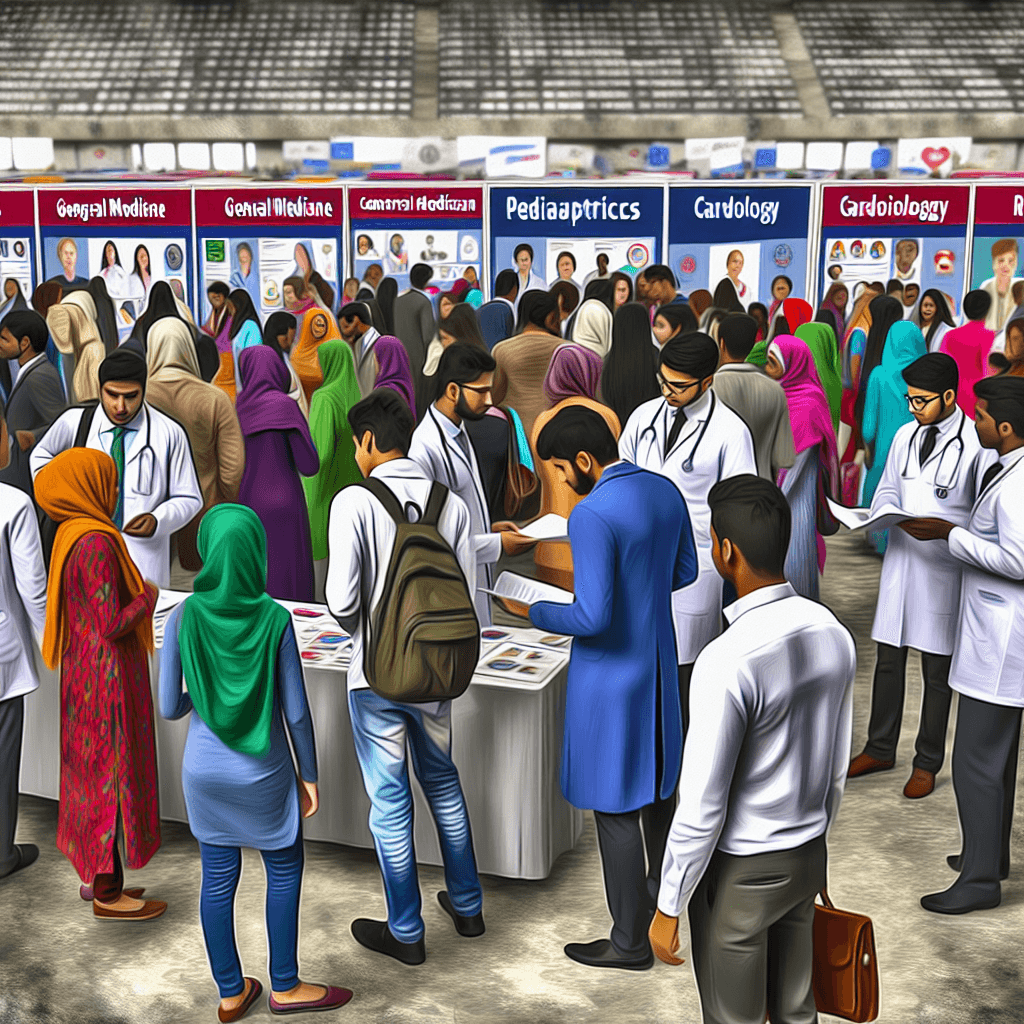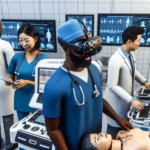Explore the growing healthcare education market, driven by technological advancements and increasing demand for skilled healthcare professionals.
Healthcare Education Market

Table of Contents
- The Expanding Horizon of the Healthcare Education Market
- Current Trends in Healthcare Education
- Market Drivers
- Challenges Facing the Healthcare Education Market
- Regional Insights
- Impact of COVID-19 on Healthcare Education
- Case Studies
- Case Study 1: Virtual Reality in Medical Training
- Case Study 2: Online Continuing Medical Education (CME)
- Future Outlook
- Conclusion
The Expanding Horizon of the Healthcare Education Market

The healthcare education market is a critical component of the global health ecosystem, ensuring the continuous development of skilled healthcare professionals who can meet the evolving needs of the population. This market encompasses a range of educational services and products, including medical, nursing, dental, and pharmaceutical education, delivered through various platforms such as online courses, in-person workshops, and hybrid models. The growth of this market is propelled by technological advancements, the increasing burden of chronic diseases, and the rising demand for continuous medical education among healthcare professionals.
Current Trends in Healthcare Education
The landscape of healthcare education is constantly evolving, influenced by technological innovation, regulatory changes, and healthcare needs. Some of the current trends include:
- Integration of Digital Technologies: The use of AI, VR, and AR in training healthcare professionals provides more interactive and realistic learning experiences.
- Focus on Interprofessional Education: This approach fosters collaborative practice among healthcare workers to improve patient care.
- Emphasis on Continuing Education: Ongoing training is crucial for healthcare professionals to keep up-to-date with the latest medical advancements and treatment techniques.
Market Drivers
Several factors are driving the growth of the healthcare education market:
- Aging Population: Older adults require more medical services, which increases the demand for healthcare professionals and, consequently, for education and training.
- Global Health Challenges: Outbreaks of diseases such as COVID-19 highlight the need for ongoing healthcare education to manage and mitigate health crises.
- Technological Advancements: Innovations in medical technology require continuous learning and adaptation by healthcare professionals.
Challenges Facing the Healthcare Education Market
Despite its growth, the healthcare education market faces several challenges:
- High Costs: The high cost of education can be a barrier for many aspiring healthcare professionals.
- Regulatory Compliance: Healthcare education providers must constantly adapt to changing regulations and standards, which can be resource-intensive.
- Quality Assurance: Maintaining the quality of education with the increasing use of online platforms is a significant challenge.
Regional Insights
The healthcare education market varies significantly across different regions, influenced by local healthcare systems, regulations, and cultural factors. For instance:
- North America: Dominates the global market due to advanced healthcare infrastructure and high adoption rates of online learning.
- Asia-Pacific: Expected to grow rapidly due to increasing healthcare demands and improving educational infrastructure.
- Europe: Strong emphasis on regulatory compliance and high-quality education drives the market.
Impact of COVID-19 on Healthcare Education
The COVID-19 pandemic has had a profound impact on the healthcare education market, accelerating the adoption of online learning and virtual training methods. Healthcare professionals needed to quickly learn about the novel coronavirus and its management, which spurred rapid developments in online education and training modules. This shift is likely to have lasting effects on how healthcare education is delivered worldwide.
Case Studies
Examining specific instances can provide deeper insights into the healthcare education market:
Case Study 1: Virtual Reality in Medical Training
Several medical schools have started using VR to simulate surgical procedures, allowing students to gain hands-on experience in a controlled environment. This technology not only improves learning outcomes but also reduces the risks associated with training on real patients.
Case Study 2: Online Continuing Medical Education (CME)
Platforms like Medscape and UpToDate offer CME courses that help healthcare professionals stay informed about the latest medical research and clinical practices. These platforms have seen significant growth, particularly during the COVID-19 pandemic, as professionals seek convenient ways to fulfill their educational requirements.
Future Outlook
The future of the healthcare education market looks promising, with continued advancements in technology and an increasing focus on lifelong learning. Personalized learning experiences, the use of big data in education, and further integration of interprofessional education are likely to shape the future of this field.
Conclusion
The healthcare education market plays a pivotal role in shaping the capabilities of healthcare professionals and, by extension, the quality of care provided to patients. As this market continues to evolve, it will likely focus more on technology-driven, personalized, and accessible education solutions. Stakeholders in this market, including educational institutions, healthcare providers, and technology developers, must collaborate to overcome challenges and leverage opportunities to enhance the learning experiences of healthcare professionals.
Understanding these dynamics is crucial for anyone involved in healthcare, education, or technology sectors, as they navigate the complexities and contribute to the development of an efficient, effective, and inclusive healthcare education ecosystem.








